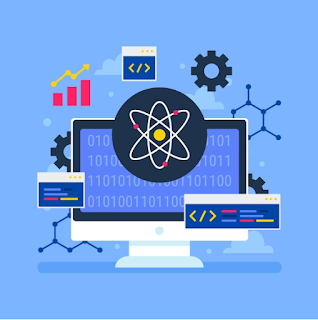Healthcare App Development: Revolutionizing Patient Care
The healthcare industry is undergoing a significant transformation driven by the rapid advancement of technology. Mobile apps have emerged as a powerful tool to revolutionize patient care, offering convenience, accessibility, and personalized experiences. Healthcare app development has become a crucial area of focus for businesses and organizations seeking to improve patient outcomes and enhance the overall healthcare experience.
Benefits of Healthcare App Development
Healthcare apps offer a multitude of benefits to patients, healthcare providers, and the healthcare industry as a whole. Some of the key advantages include:
-
Improved Patient Engagement: Healthcare apps provide patients with convenient access to their medical information, enabling them to actively participate in their care management. This enhanced engagement leads to better informed decisions, improved adherence to treatment plans, and overall better health outcomes.
-
Enhanced Communication and Collaboration: Healthcare apps facilitate real-time communication between patients and providers, enabling timely consultations, medication reminders, and remote patient monitoring. This improved communication fosters better care coordination and collaboration between all stakeholders involved in a patient's care.
-
Increased Access to Healthcare Services: Healthcare apps bridge geographical barriers and expand access to healthcare services, particularly in underserved areas. Patients can connect with specialists remotely, receive care without the need for in-person visits, and access essential health information from anywhere.
-
Cost Reduction and Efficiency: Healthcare apps can streamline administrative tasks, reduce paperwork, and automate many routine processes, leading to cost savings and increased efficiency for healthcare providers. This allows providers to focus more on patient care and improve overall productivity.
Types of Healthcare Apps
The healthcare app landscape encompasses a wide range of applications, each tailored to address specific needs and challenges within the healthcare industry. Some of the most common types of healthcare apps include:
-
Telemedicine Apps: These apps enable virtual consultations between patients and healthcare providers, allowing for remote diagnosis, treatment, and follow-up care.
-
Patient Engagement Apps: These apps provide patients with personalized health information, medication reminders, symptom trackers, and secure access to their medical records.
-
Wearable Technology Integration Apps: These apps integrate data from wearable devices, such as smartwatches and fitness trackers, to track health metrics, provide personalized insights, and share data with healthcare providers.
-
Electronic Health Record (EHR) Apps: These apps provide secure access to patient medical records, enabling healthcare providers to share information seamlessly and improve care coordination.
-
Mental Health Apps: These apps offer self-assessment tools, mood trackers, guided meditations, and resources for mental health support.
Key Considerations for Healthcare App Development
Developing successful healthcare apps requires careful consideration of several factors, including:
-
Patient Needs and User Experience: Healthcare apps should be designed with the patient in mind, focusing on ease of use, accessibility, and overall user experience.
-
Data Security and Privacy: Healthcare apps must adhere to strict data security and privacy regulations to protect sensitive patient information.
-
Regulatory Compliance: Healthcare app development must comply with applicable regulations and standards, such as HIPAA (Health Insurance Portability and Accountability Act) and FDA guidelines.
-
Integration with Existing Systems: Healthcare apps should seamlessly integrate with existing healthcare systems, such as EHRs and practice management software.
-
Continuous Improvement: Healthcare apps should be continuously updated and improved based on user feedback and evolving healthcare needs.
The Future of Healthcare App Development
The future of healthcare app development is bright and full of possibilities. As technology advances, we can expect to see even more innovative and transformative healthcare apps emerge. Some of the key trends shaping the future of healthcare app development include:
-
Artificial Intelligence (AI) and Machine Learning (ML): AI and ML will play a significant role in healthcare apps, enabling personalized treatment recommendations, predictive analytics for early disease detection, and virtual assistants for patient support.
-
Augmented Reality (AR) and Virtual Reality (VR): AR and VR will enhance patient education and training, enable virtual consultations in immersive environments, and provide remote rehabilitation support.
-
Blockchain Technology: Blockchain technology will ensure secure and transparent data sharing among healthcare providers, patients, and researchers.
-
Voice Recognition and Natural Language Processing (NLP): Voice recognition and NLP will enable hands-free interactions with healthcare apps, making them more accessible to patients with disabilities.
Conclusion
Healthcare app development has the potential to revolutionize patient care, improve healthcare outcomes, and transform the overall healthcare experience. By harnessing the power of technology and prioritizing patient needs, healthcare app developers are shaping the future of healthcare and making a positive impact on the lives of millions.
.jpg)
.jpg)

Comments
Post a Comment